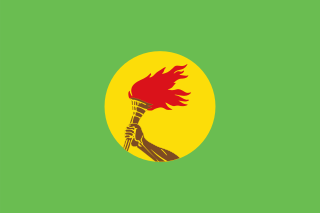Authenticité may refer to:
English usually refers to:
Falsification may refer to:

Zaire, officially the Republic of Zaire, was the name of a sovereign state between 1971 and 1997 in Central Africa that was previously and is now again known as the Democratic Republic of the Congo. It was, by area, the largest country in sub-Saharan Africa, the third-largest in all of Africa, and the 11th-largest in the world. With a population of over 23 million inhabitants, Zaire was the most-populous officially Francophone country in Africa, as well as one of the most populous in Africa.
Hassan, Hasan, Hassane, Haasana, Hassaan, Asan, Hassun, Hasun, Hassen, Hasson or Hasani may refer to:
8 mm may refer to:
Certificate may refer to:

Ulysse Chevalier was a French bibliographer and historian.

Guinea is a West African nation, composed of several ethnic groups. Among its most widely known musicians is Mory Kanté - 10 Cola Nuts saw major mainstream success in both Guinea and Mali while "Yeke Yeke", a single from Mory Kanté à Paris, was a European success in 1988.
Pam or PAM may refer to:
Trust may refer to:
PKA may refer to:
Authenticity or authentic may refer to:
A watermark is a recognizable image or pattern in paper used to determine authenticity.

Authenticité, sometimes Zairianisation in English, was an official state ideology of the Mobutu regime that originated in the late 1960s and early 1970s in what was first the Democratic Republic of Congo, later renamed Zaire. The authenticity campaign was an effort to rid the country of the lingering vestiges of colonialism and the continuing influence of Western culture and to create a more centralized and singular national identity. The policy, as implemented, included numerous changes to the state and to private life, including the renaming of the Congo and its cities, as well as an eventual mandate that Zairians were to abandon their Christian names for more "authentic" ones. In addition, Western style attire was banned and replaced with the Mao-style tunic labeled the "abacost" and its female equivalent. The policy began to wane in the late 1970s and had mostly been abandoned by 1990.
Product code is a unique identifier, assigned to each finished/manufactured product which is ready, to be marketed or for sale.
Soul rock may refer to:

The Party of Mauritanian Authenticity is a political party in Mauritania. It is led by Mohamed Mahmoud El Gharachi.
The Devil's Brigade is a nickname for the First Special Service Force, a joint Canadian–US commando unit that formed during World War II."The Devil's Brigade is seen by some as an invented moniker by the author of the 1966 book of the same title and the 1968 film that adopted it. Some question its authenticity as presented in the book and film.
Faking It or Fakin' It may refer to:
The Sirmondian Constitutions are a collection of sixteen Imperial Codes passed between AD 333 and 425, dealing with "bishops courts", or laws dealing with church matters. They take their name from their first editor, Jacques Sirmond. Some of the laws appeared in abbreviated form in the Theodosian Code. The full collection survives only in a single early medieval manuscript now in Berlin, termed the Codex Lugdunensis.